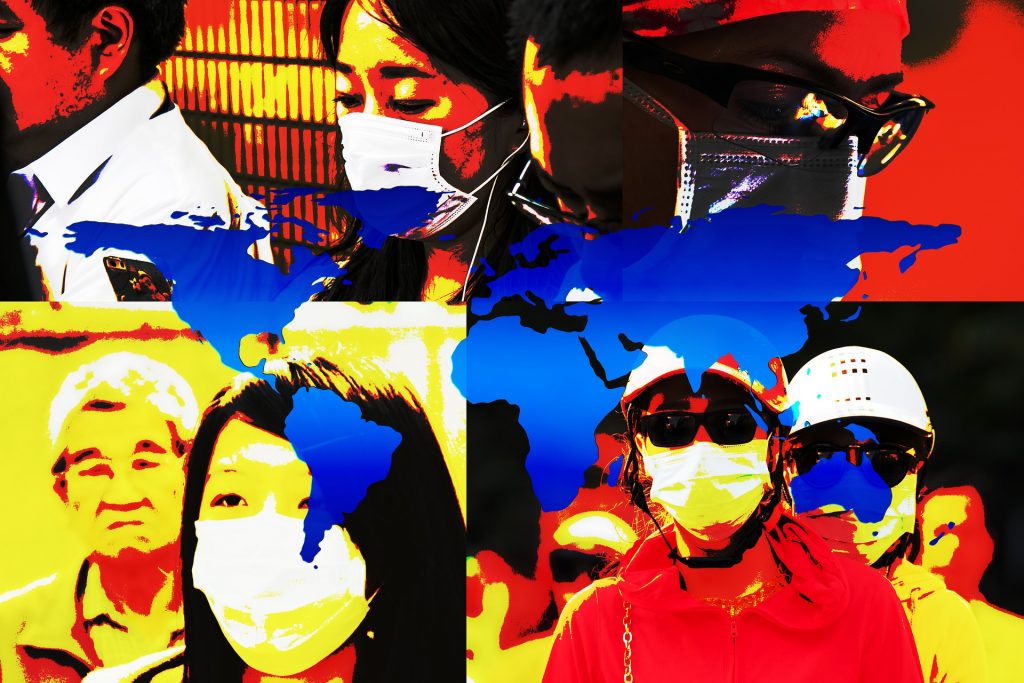Common Questions People Have About the Coronavirus

With the quick rise in the number of COVID-19 (coronavirus) cases and the World Health Organization declaring a global health emergency, people are panicked. The U.S. Centers for Disease Control and Prevention has also suggested people prepare for possible disruptions in their lives if the coronavirus becomes a reality in their communities.
People have questions about the COVID-19 virus, and the more information they have, the better choices they can make in regards to their health.
Is The Coronavirus A Person-To-Person Virus?
The virus does spread from person to person, usually through mucus or saliva droplets, when the infected person sneezes or coughs. Transmission is also possible when sharing drinks or shaking hands with an infected person.
The best way to avoid any infections – coronavirus, flu, etc. – is to wash your hands properly and take other CDC-recommended precautions. People at risk are also advised to self-quarantine themselves and monitor their symptoms for up to two weeks. A person who has the virus but is not symptomatic could spread the virus to others and make them sick.
What Is The Virus’ Incubation Period?
The current thought is that COVID-19 will appear in five days or less, but the incubation range is anywhere from one to 14 days.
What Are The Symptoms?
Common COVID-19 symptoms include dry cough, fever, difficulty breathing and pneumonia due to being a respiratory virus. However, diarrhea, vomiting and nausea are also possible. The symptoms could be mild or severe, with some cases being deadly.
Most people who get sick will recover, but how long it takes depends on the severity of the disease.
Can The Virus Survive On Hard and Soft Surfaces?
There’s been no evidence of the virus being transmitted to humans via soft surfaces. Still, surfaces, such as doorknobs, are potential places in which a virus can survive for several hours after an infected person has touched it. Personal hygiene, like washing your hands properly and wiping down hard surfaces with disinfectants are a necessity.
Will Wearing A Mask Help?
Be sure to follow the recommendations being made of the public health officials in your area. In the U.S., facemasks are not advised since the risk of community spread is low at this time. Health facilities do advise people to wear masks in some situations such as travel or coming into contact with people who have the coronavirus.
Experts suggest masks for those coughing and sneezing to stop the spread of any virus such as the flu.
People who are immunocompromised should talk to their doctor about wearing a mask or not. If a doctor hasn’t recommended the option before this, due to the flu, chances are they won’t require you to wear one now because of COVID-19.
What other things should you know about COVID-19?
There is no vaccine presently, but researchers are diligently working on it. The treatment is similar to the flu – fluids, medicine to reduce the fever and supplemental oxygen for severe cases. In cases of pneumonia, antibiotics may be given.
A special test is done to confirm a person has COVID-19 with testing conducted at the CDC in the U.S.
People who believe they or someone they know has the virus as asked to call their doctor first or reach out to their local health department. Chances are the disease will be the flu or other viral illnesses. People who have severe respiratory issues – rapid heart rate, difficulty breathing, high temperature, low blood pressure, confusion and severe dehydration are advised to visit their doctor or go to the ER.
People who have had COVID-19 must work with public health officials to ensure they are no longer carriers of the disease.
It’s not yet known just how deadly COVID-19 is, but, according to some signs, people may have already had a mild case of it and never knew it. In the beginning, 20 percent of all cases were considered severe due to the development of acute respiratory distress syndrome. The current mortality rate is sitting around three percent, but this is an early estimate of the epidemic.
For those worried about food, package or airline transmission, this virus is really no different than other viruses out there. It’s possible for infected food handlers to transmit the virus to food, but cooking the food would likely kill the virus. Packages from China are no more dangerous now than they are when they have their flu outbreak.
As for traveling, always be mindful of travel advisories. Most places do not have a travel advisory in place, and masks are not needed. People who are sick and traveling, though not advised, should wear a mask (even if it’s just the flu).
For more information and updates on the coronavirus visit the World Health Organization site.
Book Your Travel To ANY Destination
Use the interactive map below to search, compare and book hotels & rentals at the best prices that are sourced from a variety of platforms including Booking.com, Hotels.com, Expedia, Vrbo and more. Search for ANY destination by clicking in the upper left corner of this map. You can also use the filter to fine tune your search, find restaurants, attractions and more!